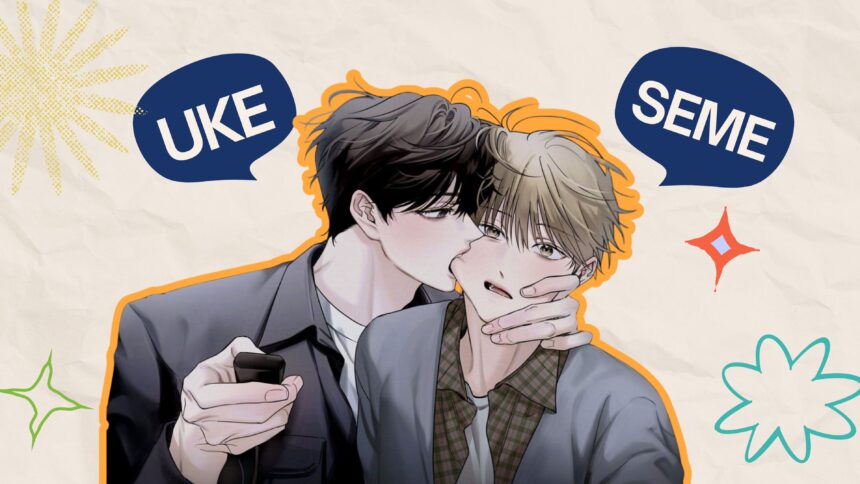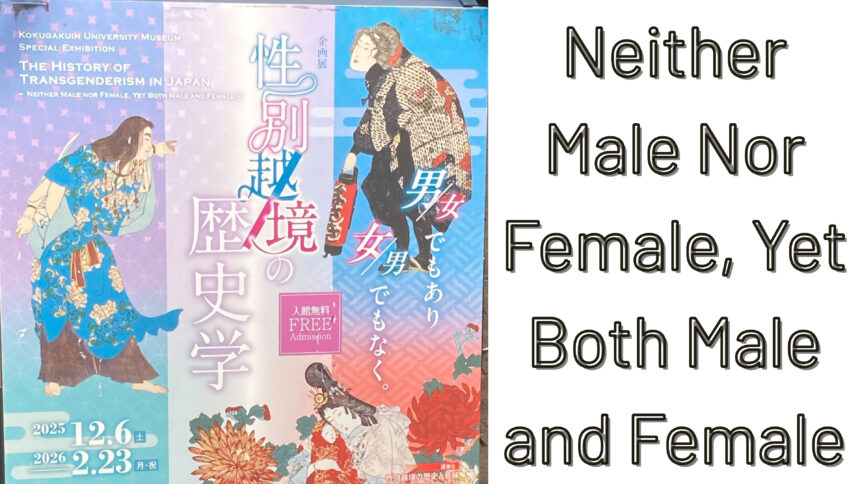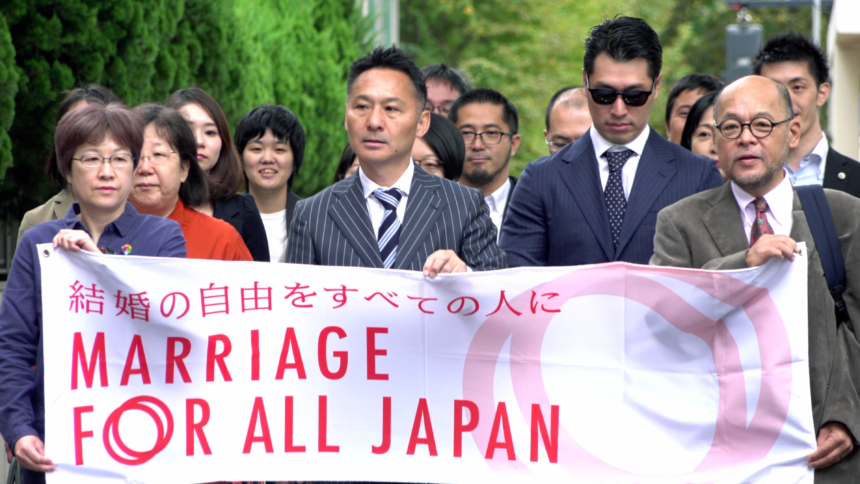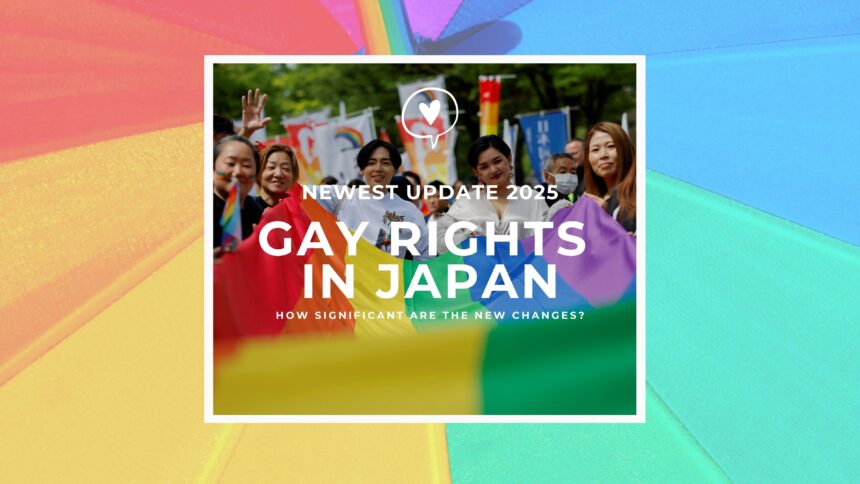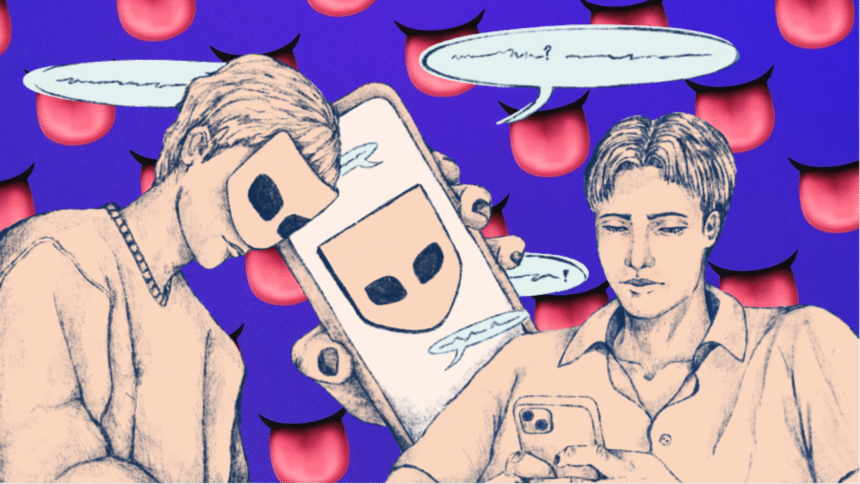In Japanese queer culture and manga, two of the most common terms are uke (ウケ) and seme (セメ). Popular in yaoi/BL (Boys’ Love) stories and sometimes used in everyday LGBTQ+ slang, they describe relationship roles between partners. For anyone curious about Japanese gay culture or BL fandoms, exploring uke and seme meaning gives valuable insight, so let’s break down what these words really mean.
What Do Seme and Uke Mean?
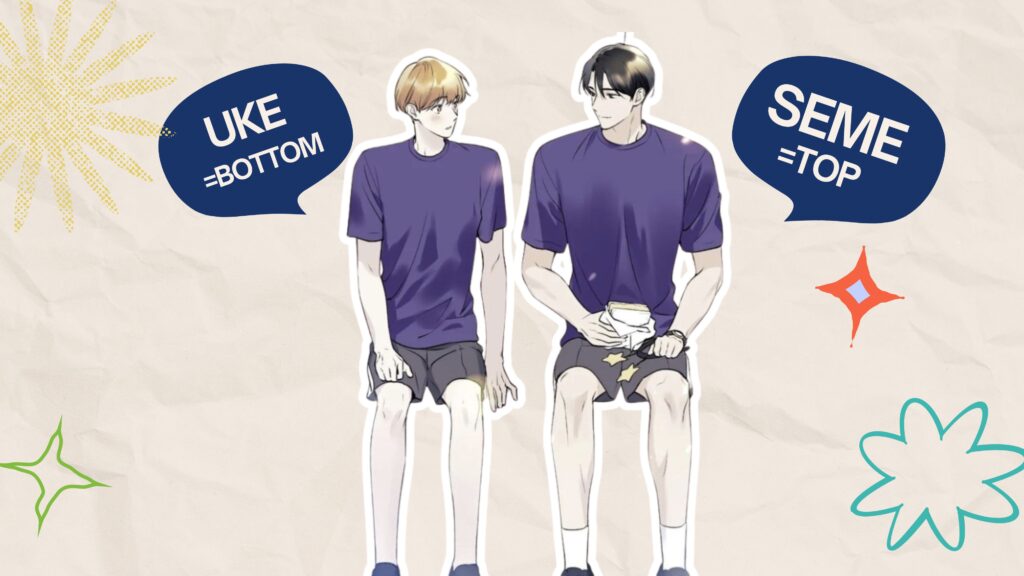
- Seme (セメ/攻め): Literally means “attacker” or “initiator.” In BL, the seme is the partner who takes the penetrative role. Seme characters are usually written as dominant, confident, or masculine, though again, this is a trope rather than a rule.
- Uke (ウケ/受け): Literally means “receiver” in Japanese. In BL and gay slang, the uke is the partner who takes the receptive role in sex. Uke characters are often depicted as more passive, shy, or feminine—but this stereotype doesn’t always reflect reality.
Uke and Seme in BL / Yaoi Culture

In yaoi/BL manga and anime, the uke–seme dynamic is central to storytelling. Many BL fans enjoy the tension and contrast between characters—such as the strong, stoic seme and the delicate, emotional uke. This archetype comes from Japanese storytelling traditions that love contrasting opposites, much like yin and yang.
Common BL tropes include:
- Tall, older seme paired with a younger, smaller uke.
- Boss/employee, teacher/student, or rival/love interest dynamics.
- Emotional growth where the uke learns confidence and the seme shows vulnerability.
Seme and Uke in Real Life

While the uke–seme roles are fun storytelling devices, they don’t always match how gay men in Japan actually live their relationships. Many Japanese gay men prefer the term tachi (top) and neko (bottom), which are closer to Western terms, or even riba (reversible/versatile) to describe switching roles.
That said, uke and seme are still widely recognized in Japan’s LGBTQ+ communities, especially among fans of BL.
Is Seme and Uke Offensive?
Generally, uke and seme are not considered offensive—especially in the context of BL manga and fandom culture, where the terms are central to storytelling. However, outside of fiction, the labels can sometimes feel reductive. Not every gay man identifies with the stereotypes of a “dominant seme” or a “passive uke.”
In LGBTQ+ communities in Japan, people are more likely to use terms like tachi, neko, or riba, which are considered more neutral and practical. As with any label, the key is respect—uke and seme are fine to use when talking about BL, but it’s better not to assume real people fit neatly into those categories.
Related Terms in Japanese LGBTQ+ Slang
- Tachi (タチ) & Neko (ネコ): A gay man who takes the active/top role and passive/bottom role.
- Okama (おかま): An outdated, often offensive word for effeminate gay men.
- Onabe (おなべ): Refers to AFAB individuals presenting as male, often in nightlife contexts.
